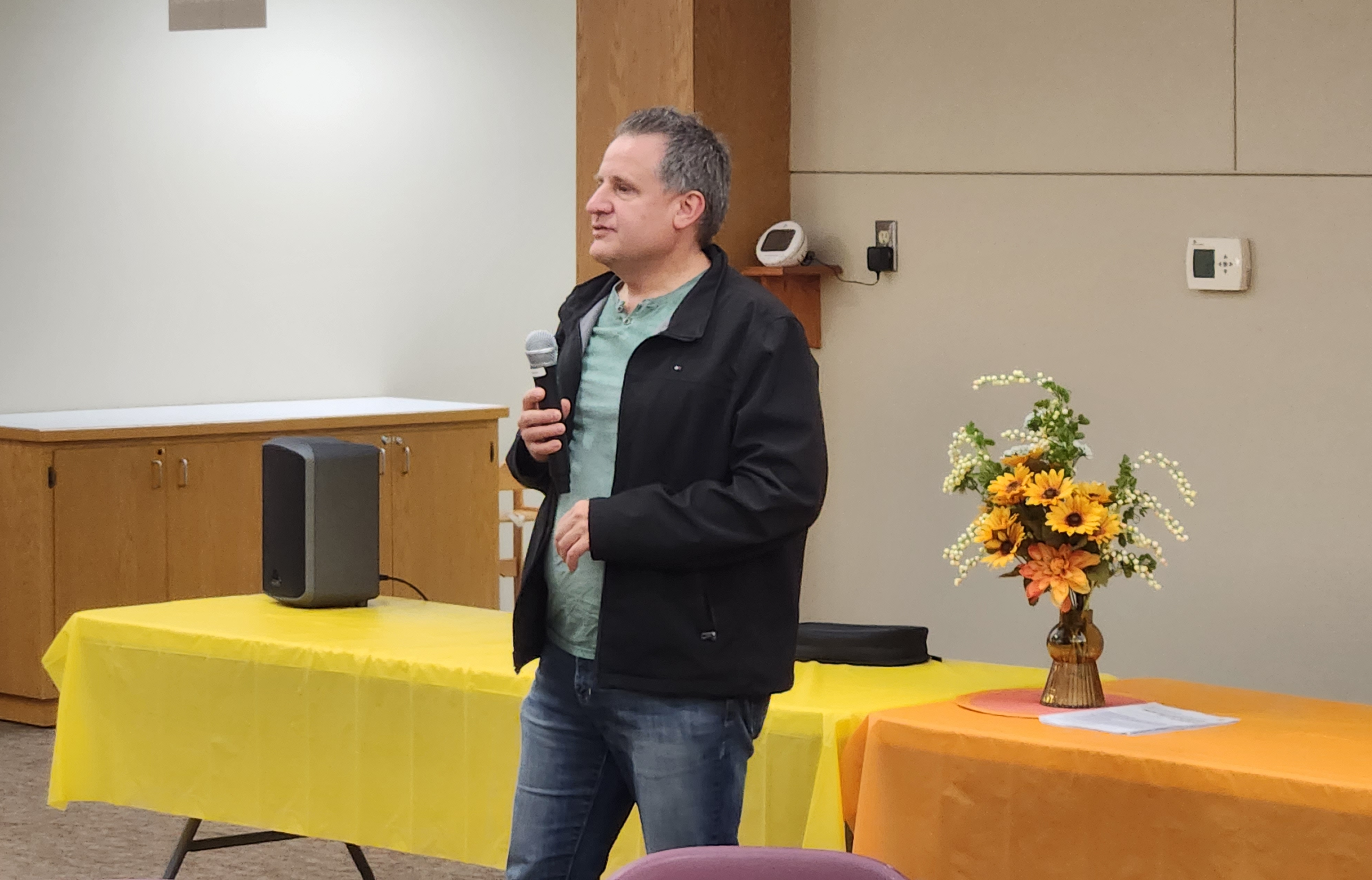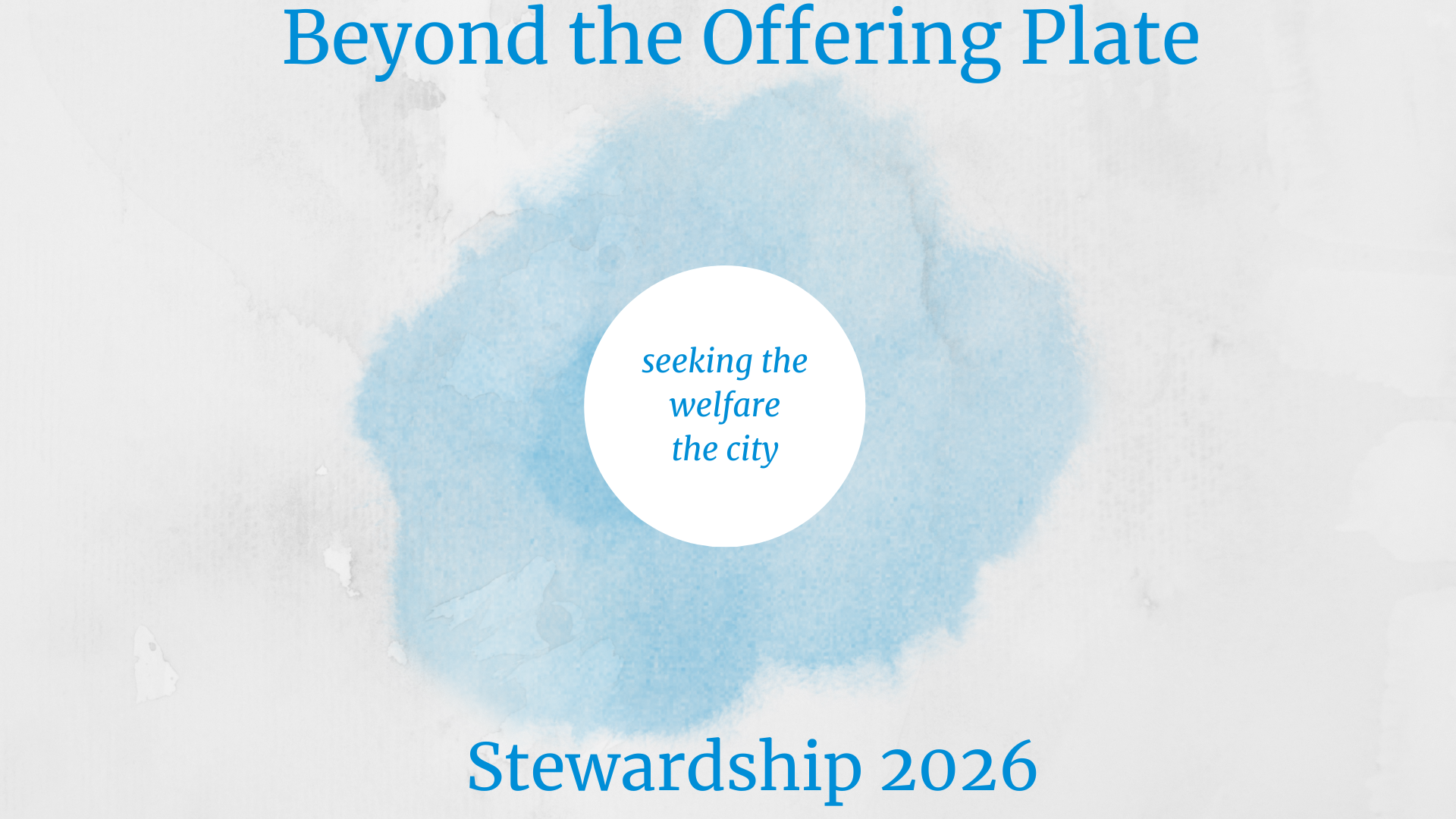Take Good Care of the Things We Borrow

People of faith have a complicated history with the weather.
No, I’m not talking about the mundane conversation starter noting if it’s sunny or rainy while sitting around a table with donut holes and sipping on Folgers.
Responses to phrases like global warming or climate change can get a little… heated.
This is nothing new. Arguments on our human responsibility for climate change have been disputed for generations.
At Faith Lutheran, we had a lively discussion this past weekend—while sitting around tables eating donut holes and sipping on Folgers—about what our faith teaches us regarding this important topic.
We held an inter-generational conversation using a curriculum made by my two local pastors called “Brewed Theology.” The study guide encouraged our participants to reflect on their own understanding of creation care from a Biblical perspective and merge their modern understanding of stewardship with the earth.
Elizabeth Forslund joined the conversation and shared during the group reflections. “Many of my religious friends see climate change as political and negative,” said Forslund. “But I love the phrase creation care as it puts the focus on caring for God’s creation in general as something the Bible tells us to do and something we desire to do because of our faith.”
What does the Bible say about creation care?
At the beginning of Genesis, humans are told to “subdue [the earth] and have all dominion over [living things]” in Genesis 1. Then, in the second (and noticeably different account of creation), this writer says we are to “care for the garden and maintain it.”
One account seems to encourage humans to use the earth as we choose and take power over all things. The other account encourages a level of stewardship to remember that everything we have belongs to God and we’re tasked with being caretakers.
Climate change (or global warming), rainforest devastation, pollution, and other human-impacted consequences to the earth could be seen as an overreliance on assuming dominion on the earth.
Deacon Steve Arnold reflected on this unfortunate interpretation. “Dominion does not mean to abuse for our own use,” said Arnold. “Dominion means to lift up and care for as God would.”
Faith Lutheran formed a “Creation Care” committee over five years ago and this group continues to strive for environmentally conscious steps for the congregation to take—both as a church and giving individual members a way to apply these principles at home.
“We talked about ways we can be better stewards of God’s creation through being mindful and disciplined in reducing the amount of plastics we buy and looking for other alternative ways to reduce, recycle, and reuse,” said member Kay Drinkwitz. “Another idea is to let nature be nature and not over-tend the land which can actually be damaging for pollinators and other creatures that rely on nature for their habitats.”
Faith is investigating big and little ideas. From investing in solar panels to exchanging plastic communion cups for compostable cups that can reduce waste each week, Faith takes our role as stewards seriously.
I was raised to take good care of the things I borrow so that I return them in better condition. That includes one large item God tasked us to care for.
The earth.
Pastor John Klawiter writes a monthly column for the Forest Lake Times. This article appears in the October 26th issue






Login To Leave Comment